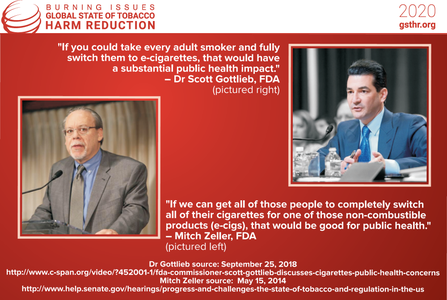Individual Health to Public Health
Individual Health to Public Health
Knowledge•Action•Change (2020)- Burning Issues: The Global State of Tobacco Harm Reduction 2020

Much attention is given to ‘expert’ views on the use of safer nicotine products (SNP). Little attention is paid to the millions of ex-smokers who benefit from SNP and who will suffer should legislation grow increasingly prohibitionist.
Smoking per se is not a disease and even if many smokers wish they could quit (or at least wished that they wanted to quit), they do not regard themselves as ‘ill’ or ‘patients’ needing ‘treatment’.
The social, cultural and psychological dynamics of smoking are complex. In his book Ashes to Ashes, Richard Kruger eloquently explores what he calls the ‘protean usefulness’ of the cigarette, capturing the essence of the pleasure principle. This extract gives a flavour of what smokers are expected to give up and why they find it so hard, especially if they are long time smokers:
“The smoker smokes when he feels up or in the dumps when too harassed or overburdened or too unchallenged and idle, when threatened by the crowd at a party or when lonely in a strange place. A smoke is a reward for a job well done, consolation for a job botched. It can fuel the smoker for the intensity of life’s daily confrontations yet seem to insulate him from the consuming effects of any given encounter. It defines and punctuates the periods of the smoker’s day.”
See also p.56 of the report: Burning Issues: The Global State of Tobacco Harm Reduction 2020